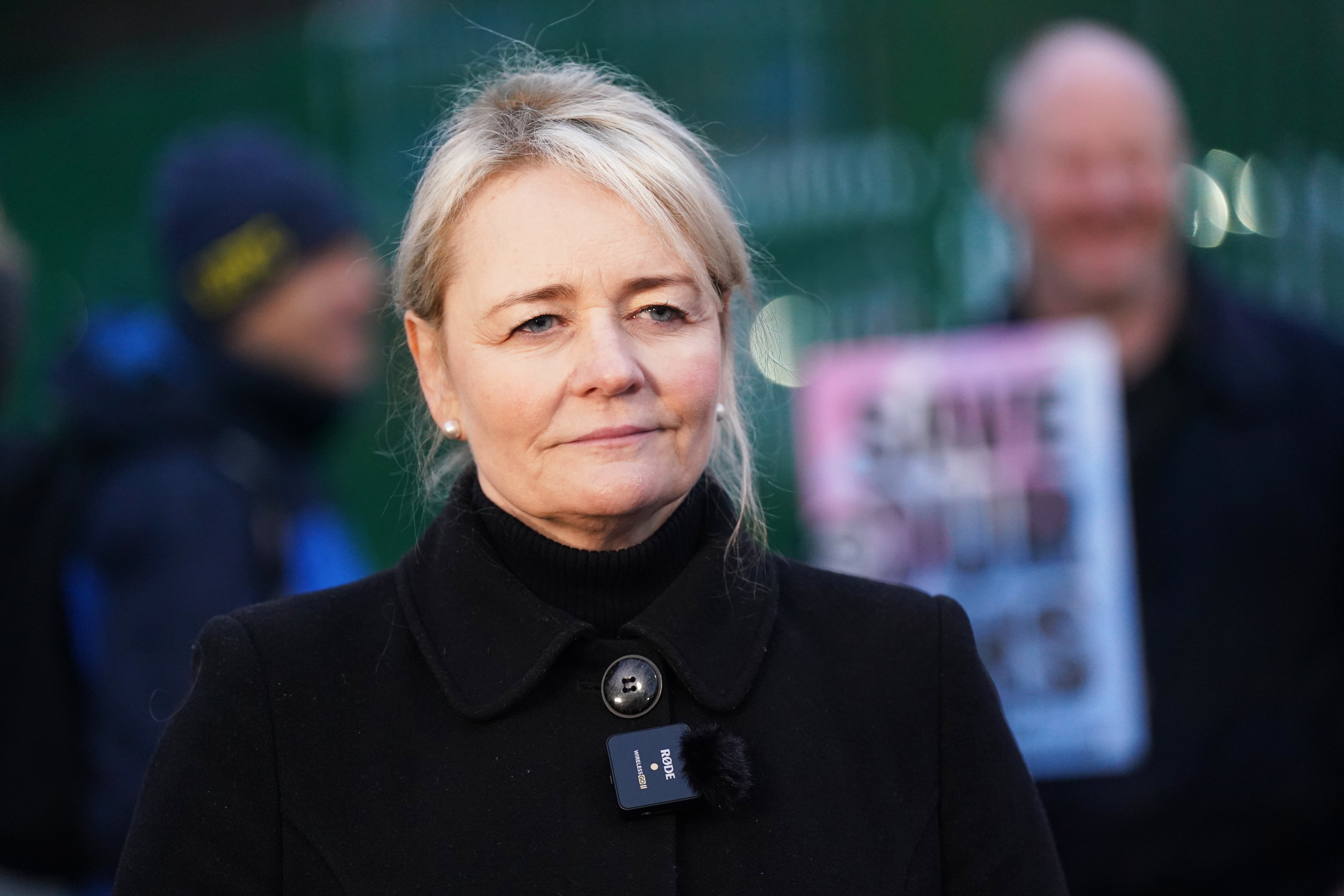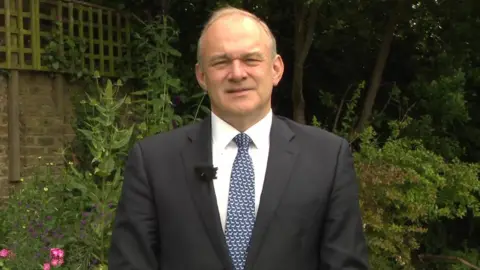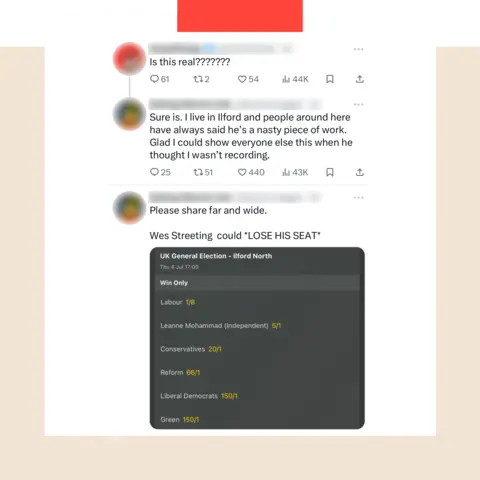UK Government rejects Blair’s call for digital ID cards to help control migration
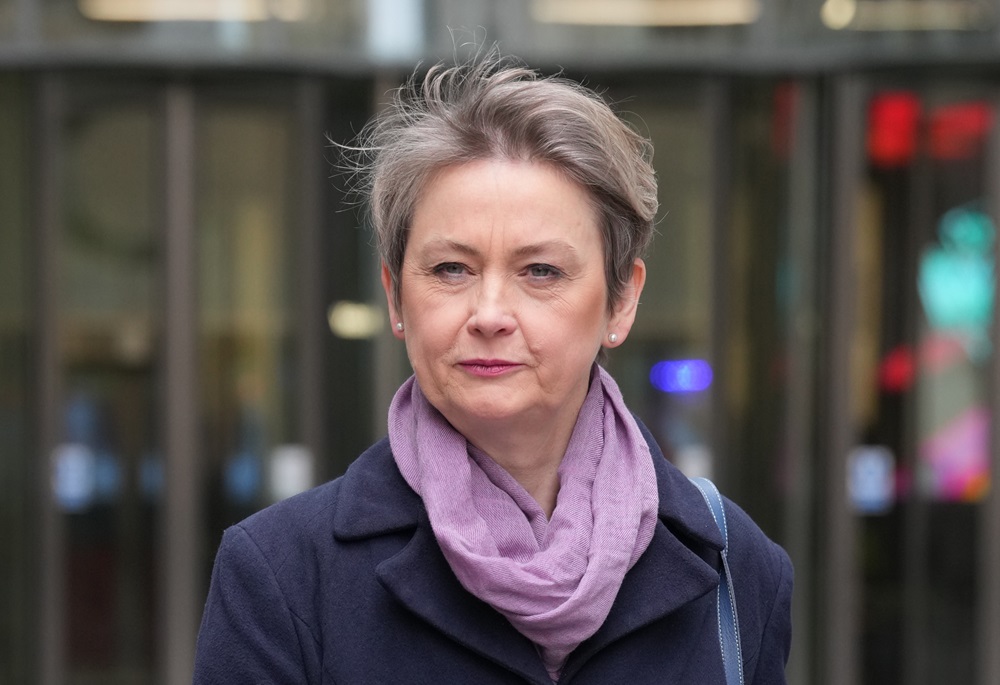
The Government has ruled out the introduction of digital ID cards after former premier Sir Tony Blair called for the documents to help control migration.
Sir Tony, who championed ID cards when he was in office only for the idea to be killed off after Labour lost power, said the world was moving to a digital form of the document.
Business Secretary Jonathan Reynolds initially said Home Secretary Yvette Cooper would look at “all sources of advice” on the issue.
Sources close to Ms Cooper said ID cards were not Labour policy and that has not changed, with Mr Reynolds later publicly ruling them out.
‘Game-changer’
Writing in the Sunday Times, Sir Tony said: “The only game-changer is the full embrace of the potential of technology.”
He added: “We need a plan to control immigration. If we don’t have rules, we get prejudices.
“In office, I believed the best solution was a system of identity so that we know precisely who has a right to be here.
“With, again, technology, we should move as the world is moving to digital ID. If not, new border controls will have to be highly effective.”
Mr Reynolds told Sky News’s Sunday Morning With Trevor Phillips: “The new Home Secretary will be looking at all sources of advice when it comes to that.
“But I would just say we have backed the points-based immigration system, we made difficult decisions, particularly when we thought legal migration was too high and it has to come down.”
Pressed again on ID cards he said: “Well look, my colleague Yvette Cooper and the rest of the home affairs team will be looking at all sorts of things.
“I’m not going to pre-empt things they may or may not want to do.”
Mr Reynolds later told Times Radio: “We can rule that out, that’s not something that’s part of our plans.”
Tony Blair calls for Keir Starmer to be tough on immigration, crime and ‘wokeism’
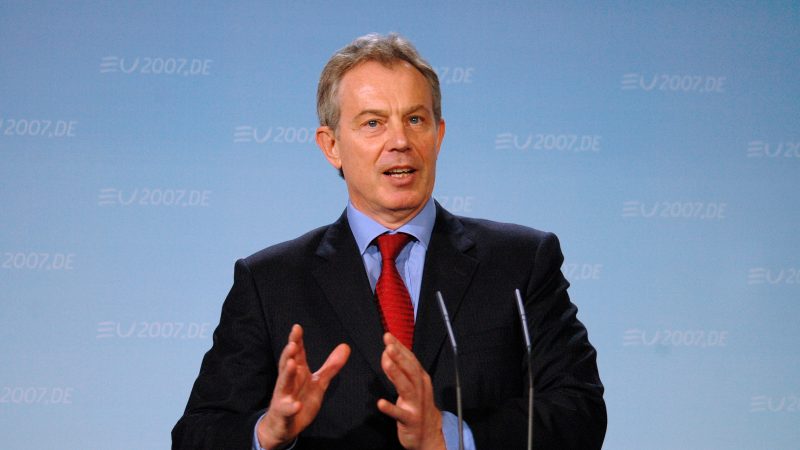
Tony Blair has called for “a plan” for immigration control, tougher action on crime and for the new government to avoid “any vulnerability on wokeism”.
In a lengthy opinion piece for The Times, the former Prime Minister also called for the new Labour government to embrace AI.
Blair outlined the need for “a plan to control immigration”, stating “if we don’t have rules, we get prejudices”. He also argued for a “tough new approach to law and order”, pointing to criminal modernisation outstripping that of law enforcement.
Blair also said “There is also clearly a challenge in part of the Muslim community, but that is a topic requiring its own special analysis.”
Blair said that in office he believed the best solution on immigration “was a system of identity, so we knew precisely who had a right to be here”, stating “we should move as the world is moving towards digital ID”. Blair’s government u-turned on ID cards following a lengthy and controversial attempted roll-out.
Blair said AI application in the private sector – and encouragement by government – “is the only answer to Britain’s productivity challenge”. He also called for AI deployment in healthcare, education and government processes.
Blair previously warned that AI “will change everything” in 2023 and his Tony Blair Institute for Global Change has a large body of work on the topic.
He has also made recent comments on social issues, stating “biologically, a woman is with a vagina and a man is with a penis” in June and stating Labour must avoid the “cul-de-sac of identity politics” in 2020. He had previously urged Starmer to drop “woke” politics in 2022.
By Becky Morton,

Sir Tony Blair tried to introduce ID cards when he was prime minister
The government has ruled out the introduction of digital ID cards, after former Labour Prime Minister Sir Tony Blair said they could help control immigration.
Business Secretary Jonathan Reynolds initially said the home secretary would "be looking at all sources of advice" on the issue.
However, he later told Times Radio ID cards were not part of the government's plans.
Home Secretary Yvette Cooper said ID cards were not in the party's election manifesto and added: "That’s not our approach."
Sir Tony brought in legislation for compulsory identity cards when he was in office but the scheme was scrapped by the Conservative-Liberal Democrat coalition government.
Writing in the Sunday Times, Sir Tony said: "We need a plan to control immigration. If we don't have rules, we get prejudices.
"In office, I believed the best solution was a system of identity so that we know precisely who has a right to be here.
"With, again, technology, we should move as the world is moving to digital ID. If not, new border controls will have to be highly effective."
But asked if she could rule out introducing digital ID cards, Ms Cooper said: "It’s not in our manifesto. That’s not our approach."
Instead, she said the government was setting up a new enforcement and returns unit, as well as targeting people-smuggling gangs to prevent small boats crossings.
Asked about the possibility of introducing digital ID cards, Mr Reynolds told Times Radio: "We can rule that out, that's not something that's part of our plans."
Opponents of identity cards have raised concerns about the potential impact on civil liberties and what they see as unnecessary data collection by the state.
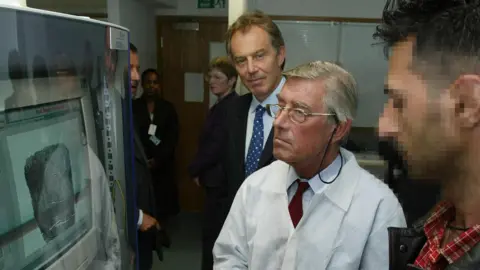
Tackling illegal immigration is one of the major challenges facing the new government.
So far this year, more than 13,000 people have crossed the Channel in small boats.
The figure is higher than numbers for the same period last year, although in 2023 as a whole there was a drop compared to 2022.
The previous Conservative government had hoped to send people who arrived in the UK illegally to Rwanda to deter small boat crossings.
However, no migrants were sent to the country under the scheme before the Tories lost power.
On Saturday Prime Minister Sir Keir Starmer said the Rwanda scheme was "dead and buried".
Labour had branded the plan an expensive "gimmick" and pledged to scrap it.
Instead the party has promised to set up a new Border Security Command, bringing together Border Force officials, police and intelligence agencies, and use counter-terror powers to tackle people-smuggling gangs.
The government said recruitment for the leader of the command would kick off on Monday, with the post likely to be taken up in the coming weeks.
The last Labour government got as far as issuing the first ID cards to UK citizens and 15,000 were in circulation when the scheme was scrapped by the coalition government in 2011 and the database destroyed.
Compulsory ID cards for foreign nationals were issued to about 200,000 people before being rebranded as biometric residence permits.
Lord Blunkett, who launched the ID cards plan when he was home secretary, claimed they had already started to make a difference to illegal immigration when they were scrapped.
Earlier this year, he told The Daily Mail: "The gangs realised it wasn't worth their while to traffic people into the UK if migrants found they were unable to work or claim benefits without an ID card, and thus would be liable to deportation."



